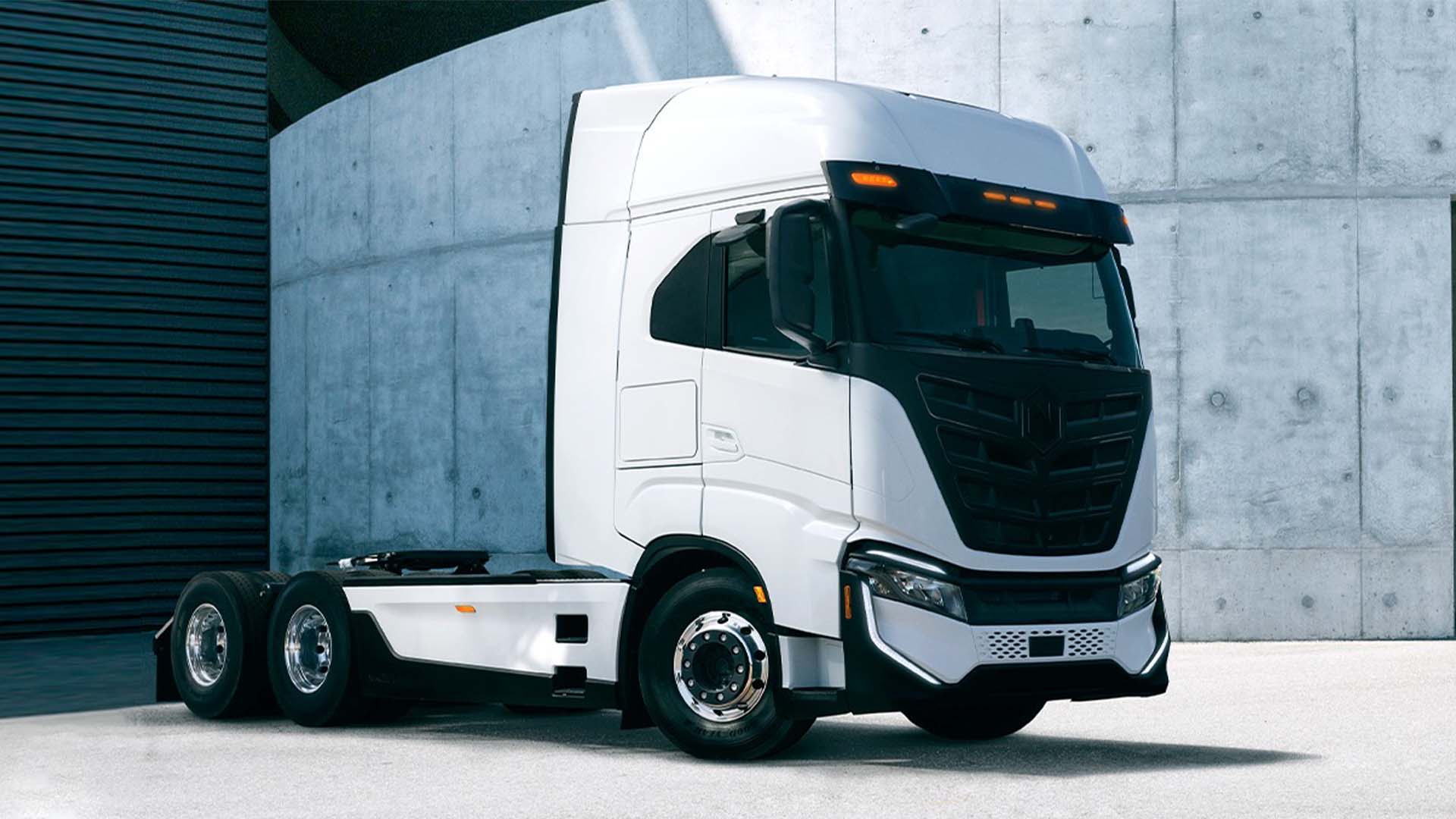

Contrary to what you might’ve thought after its founder and former CEO Trevor Milton got nailed with securities fraud charges, Nikola Motors has not gone under. It’s not turning a profit, either, but it announced that it is indeed building battery-powered semi-trucks. This has got investors hopeful in the electric vehicle startup for the first time in a while, and now it’s time to see how much customer interest translates into orders.
Nikola apparently started production of its battery-electric Tre heavy-duty truck on Monday but didn’t announce it until Wednesday, March 23, at its Analyst Day Presentation. This version is meant for shorter hauls in the range of 350 miles or less, and Nikola claims it has up to 450 orders for the Tre BEV. Demand for the fuel-cell Tre is higher, with Anheuser-Busch signing a contract for up to 800 orders.

Deliveries for the Tre BEV are set for Q2 2022, and Nikola said during Wednesday’s event that it anticipates between 300 and 500 of the trucks will make it to customers this year. Nikola does offer direct sales, though it also has a small dealer network that includes a new store in Arizona that was just announced this week. These retail outlets seem to mainly be treated as places of contact for potential customers where they can get hands-on experience with the semis, in addition to the demos the company has provided to a handful of freight and logistics operations.
If you’ve paid close attention to Nikola, you might remember that a few pre-production Tre BEVs were sold to the Port of Los Angeles in December 2021. Nikola says it built 40 of these before series production began in earnest, with 18 of them being delivered already and the remaining 22 awaiting final checks and commissioning. This, combined with its pilot testing for freight firm TTSI, prepared the company for primetime at its facility in Coolidge, Arizona.


The day cab Tre BEV makes 645 continuous horsepower thanks to nine battery packs that are nestled inside its frame. It makes use of a single driven axle that’s backed up by another undriven one for load support, though we don’t know exactly what its max towing capacity is. It’s classified as a Class 8 vehicle, meaning it has a GVWR of over 33,001 pounds, which is no surprise since it’s surely heavy even without a trailer.
While it wouldn’t be right to position Nikola as a bigger success than Tesla, it’s at least noteworthy that the startup—which has been embroiled in controversy for nearly two years—brought its semi to market first. Tesla looks to be nearing this stage as well, and its own Semi has been spotted testing quite a bit in the past few months. Its believed that limited production of the Tesla commercial truck may have begun with the first batch destined for PepsiCo, though no deliveries have been confirmed. Last anybody knew in January, PepsiCo was preparing its facilities for the fleet of electric Semis with a new Megacharger installation.
Got a tip or question for the author?